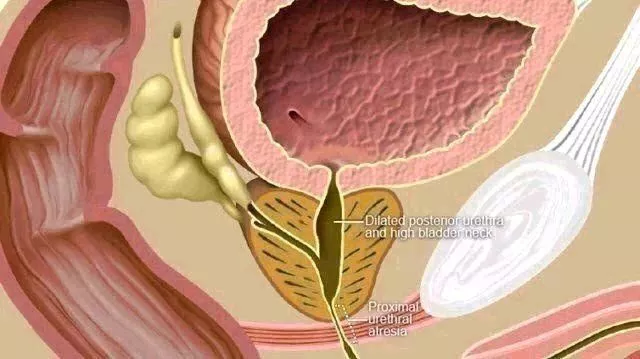
High blood pressure (also called hypertension) is a silent killer that affects over 1 billion people worldwide. Left unchecked, this condition can increase your risk of heart attack, stroke, kidney disease and heart failure.
Fortunately, high blood pressure isn't a life sentence. It can often be managed with simple, consistent lifestyle changes, starting with a few smart habits you can adopt as soon as you wake up.
To learn more, we spoke with registered dietitians. Here are their top morning strategies to help you reduce your blood pressure and improve heart health.
1. Drink a Glass of Water
"After an overnight fast, rehydrating your body can help to support healthy blood volume and circulation," explains Erin Palinski-Wade, RD, CDCES, a registered dietitian and certified diabetes educator. "Adequate hydration keeps your blood vessels functioning optimally and helps prevent spikes in blood pressure."
Trista Best, M.P.H., RD, a registered dietitian with Balance One Supplements, adds, "Hydration is key for ensuring blood flows smoothly through your arteries. Proper hydration maintains blood volume, which is essential for steady blood pressure."
In fact, one study found that people with hypertension had lower levels of total body water. So, start your day with a glass of water. It will help replenish fluids and support healthy blood pressure.
2. Take a Brisk Walk
Whether it's a stroll around the block or walking your dog, a morning walk does more than just set a positive tone for your busy day. Research has found that walking may also help improve blood pressure. The reason? "Cardiovascular exercise helps to strengthen your heart muscle and improves its efficiency, which can boost cardiovascular fitness and help to lower resting blood pressure," says Palinski-Wade.
3. Manage Stress
According to the American Heart Association, managing stress may help lower levels of stress hormones. That can make it a helpful strategy for keeping your blood pressure in check. "Spend five to 10 minutes doing deep breathing exercises or meditation to reduce stress and lower cortisol levels," says Best. What makes them so effective? "Practices like deep breathing or meditation activate the parasympathetic nervous system, promoting relaxation and reducing stress hormones like cortisol," explains Palinski-Wade.
However, meditation and deep breathing aren't the only ways to infuse calm into your morning. The National Institutes of Health recommends adding relaxation techniques such as guided imagery, progressive muscle relaxation and yoga to your daily routine to help keep stress levels in check.
4. Eat a Heart-Healthy Breakfast
Fueling your body with the right nutrients in the morning is another crucial habit for healthy blood pressure. "A balanced breakfast rich in fiber, potassium and magnesium supports cardiovascular health," says Palinski-Wade. She suggests eating a slice of avocado toast on whole-grain bread for breakfast, which provides a good source of all three nutrients. If you could use a new spin on your usual avocado toast, these tasty avocado toast variations can shake things up.
At the same time, what you don't eat in the morning may be almost as important as what you do eat. "Limit processed and packaged foods, which are often high in sodium," says Best. "Excessive sodium can cause water retention and increase blood pressure, so aim to stay under 1,500 to 2,300 milligrams of sodium per day as recommended by health guidelines."
Another way to counteract the blood pressure-raising effects of sodium is by working more potassium into your morning. Bananas, raisins, prunes and dried apricots are all good sources of this mineral, which relaxes blood vessel walls and counteracts the negative effects of high sodium intake on blood pressure. So, toss a small handful of dried fruit or a sliced banana into your morning oatmeal or cereal. Or, stir them into yogurt, which-along with other dairy products-is also a good source of potassium.
5. Avoid Caffeine Right When You Wake Up
Jumping straight into a cup of coffee can spike your cortisol levels. According to the American Heart Association, chronically high cortisol levels can increase the risk of developing hypertension in people with normal blood pressure within six to seven years.
Instead of reaching for that cup, hydrate first and hold off on your morning brew for 30 to 60 minutes after waking, advises Best. However, if you just can't start your morning without the taste of coffee, grab a cup of decaf to hold you over.
Strategies to Improve Blood Pressure
Follow the DASH Diet: "The DASH diet is one of the most impactful strategies for reducing blood pressure," says Palinski-Wade. The heart-healthy DASH diet emphasizes whole foods like fruits, vegetables, lean proteins and low-fat dairy while limiting sodium. Decades of research show that it can help lower blood pressure. It has also been shown to protect against heart disease, stroke, type 2 diabetes and obesity. No wonder it's our favorite diet to lower blood pressure.
If you could use some help getting started, check out our 7-Day DASH Diet Meal Plan.Stay Active: "Exercise strengthens the heart, improves circulation, and can lower blood pressure over time," says Best. To support your heart health, aim for at least 150 minutes of moderate (or 75 minutes of vigorous) exercise per week as recommended by the Centers for Disease Control and Prevention.
Limit Alcohol and Avoid Smoking: "Excessive alcohol [consumption] can raise blood pressure, so stick to the recommended moderate consumption of one drink per day for women and two for men," advises Best., It's no secret that smoking is bad for your heart and blood pressure. However, quitting can be difficult. If you smoke, speak with your health care provider about strategies and support to help you quit.
Get Enough Sleep: The American College of Cardiology reports that consistently getting less than seven hours of sleep per night increases the risk of high blood pressure and cardiovascular disease. The link is so strong that less than seven hours of sleep per night has been shown to increase the risk of high blood pressure by 7%, and fewer than five hours raises it to 11%. "Aim for seven to nine hours of quality sleep each night," suggests Palinski-Wade.
The Bottom Line
Better blood pressure starts with small but impactful changes to your daily routine. These healthy strategies include drinking water, staying active, managing stress, fueling your body with heart-healthy nutrients and avoiding caffeine first thing in the day. To further improve your blood pressure, consider following the DASH diet, exercising regularly, limiting alcohol, avoiding smoking and prioritizing sleep.
As always, if you have any questions or concerns related to your blood pressure or cardiovascular health, speak with your health care provider to determine if you could benefit from additional treatment.

















Comments